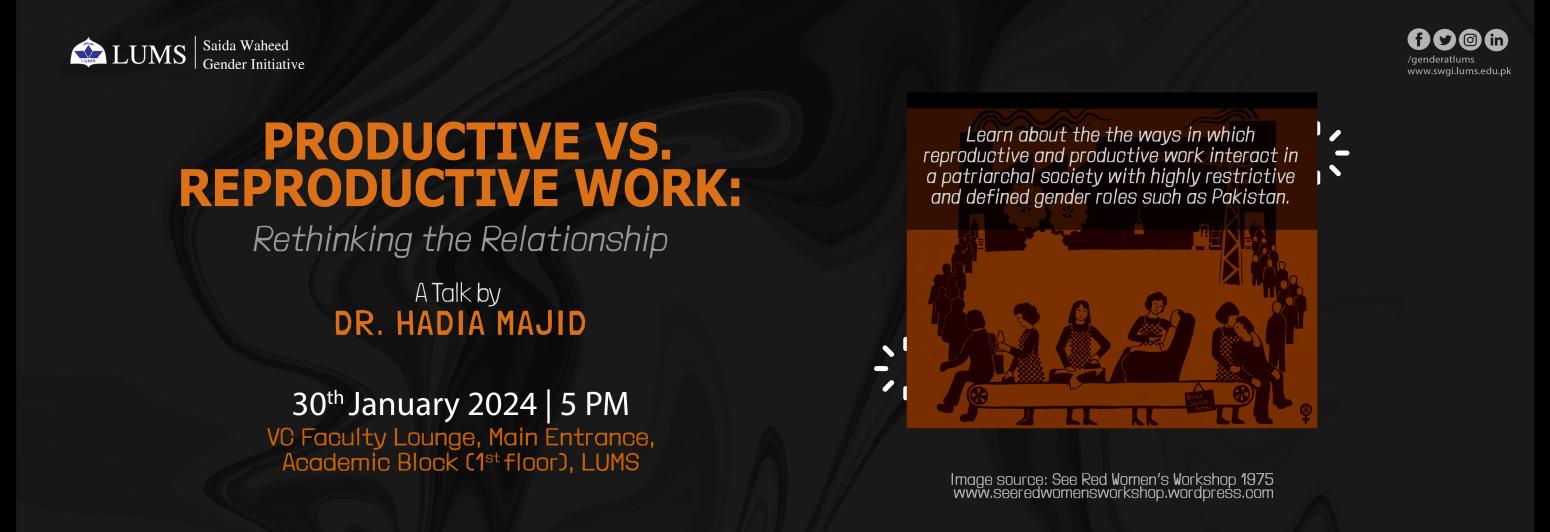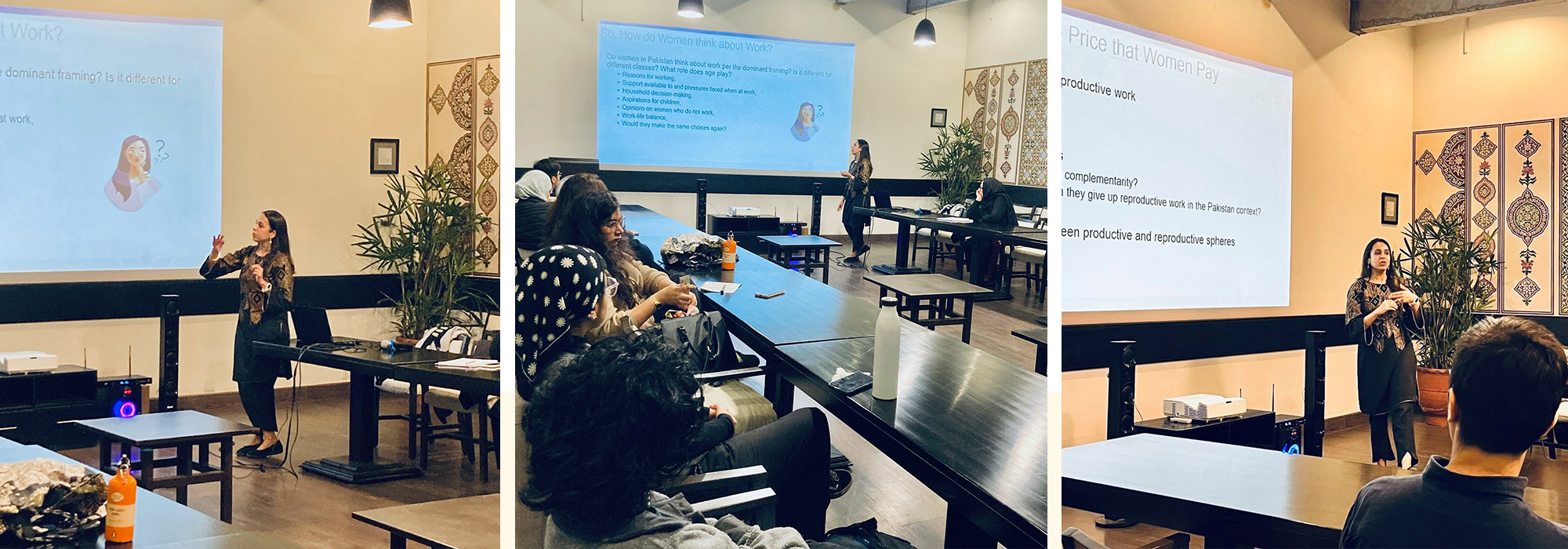
to
Speaker: Dr. Hadia Majid
This conversation will explore how the relationship between productive and reproductive work has largely tended to underscore tradeoffs. Here, a major emphasis remains the role of gender relations in driving gendered burdens of productive vs. reproductive work, with analyses predominantly showing that reproductive work constrains women’s productive choices. The current analysis looks at the various channels through which reproductive work mediates women’s access to economic resources while pushing back on the framing that the first necessarily compromises the second. Referencing national and international policy agendas and using in-depth interviews with 15 women across socio-economic classes, Dr. Hadia presents the ways in which reproductive and productive work interact in a patriarchal society with highly restrictive and defined gender roles such as Pakistan. She highlights the constraints along with the opportunities that reproductive work presents in extending women’s access to economic resources as well as how women approach and conceptualize their social reproductive work. In the end, she makes a case for reframing the relationship between the productive and reproductive spheres and the directions in which this needs to be extended to make real headway in improving women’s well-being.
Dr. Hadia Majid is Associate Professor and Chair of Economics at LUMS. She is also the Co-Director of the Gender and Technology Cluster at the university. She served as the Director of the Saida Waheed Gender Initiative at LUMS and is a part of the Steering Committee now. Her research agenda considers the impact of monetary and public resource constraints on individuals in Pakistan. Her work includes cash transfer evaluations, public goods provisioning, household decision-making, and factors affecting women’s labor supply and their access to decent, empowering work. She has published in international journals and is currently editing a book titled Gender at Work in Pakistan.

